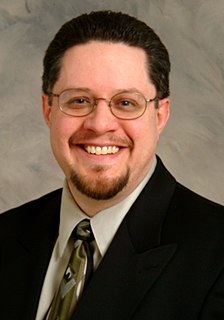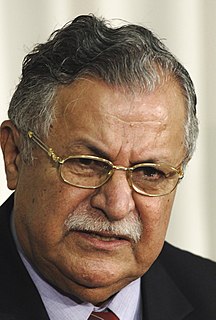A Quote by Brigham Young
I do not lift my voice against the great and glorious Government guaranteed to every citizen by the Constitution, but against those corrupt administrators who trample the Constitution and just laws under their feet.
Related Quotes
The laws are, and ought to be, relative to the constitution, and not the constitution to the laws. A constitution is the organization of offices in a state, and determines what is to be the governing body, and what is the end of each community. But laws are not to be confounded with the principles of the constitution; they are the rules according to which the magistrates should administer the state, and proceed against offenders.
Every single person in the government swears an oath to the very same constitution, to abide by the laws in pursuance of this constitution, and they all have the responsibility to follow its plain words....If a judge makes a ruling that is contrary to the plain words of the Constitution, then it's not law, it's just his bad opinion!
That provision in the constitution which requires that the president shall be a native-born citizen (unless he were a citizen of the United States when the constitution was adopted,) is a happy means of security against foreign influence, which, where-ever it is capable of being exerted, is to be dreaded more than the plague.
The Constitution should contain a provision that every officer of the Government who should neglect or refuse to extend the protection guaranteed in the Constitution should be subject to capital punishment; and then the president of the United States would not say, "Your cause is just, but I can do nothing for you."
A constitution, therefore, is to a government what the laws made afterwards by that government are to a court of judicature. The court of judicature does not make the laws, neither can it alter them; it only acts in conformity to the laws made: and the government is in like manner governed by the constitution.
The Constitution is not a law, but it empowers the people to make laws... The Constitution tells us what shall not be a lawful tender... The legislature has ceded up to us the privilege of enacting such laws as are not inconsistent with the Constitution of the United States... The different states, and even Congress itself, have passed many laws diametrically contrary to the Constitution of the United States.
Constitutions are violated, and it would be absurd to expect the federal government to enforce the Constitution against itself. If the very federal judges the Constitution was partly intended to restrain were the ones exclusively charged with enforcing it, then "America possesses only the effigy of a Constitution." The states, the very constituents of the Union, had to do the enforcing.
Resolved, That the General Assembly of Virginia, doth unequivocally express a firm resolution to maintain and defend the Constitution of the United States, and the Constitution of this State, against every aggression either foreign or domestic, and that they will support the Government of the United States in all measures warranted by the former.
I am committed against every thing which in my judgment, may weaken, endanger, or destroy (the Constitution) ... and especially against all extension of Executive power; and I am committed against any attempt to rule the free people of this country by the power and the patronage of the Government itself.
If Aristotle, Livy, and Harrington knew what a republic was, the British constitution is much more like a republic than an empire. They define a republic to be a government of laws, and not of men. If this definition is just, the British constitution is nothing more or less than a republic, in which the king is first magistrate. This office being hereditary, and being possessed of such ample and splendid prerogatives, is no objection to the government's being a republic, as long as it is bound by fixed laws, which the people have a voice in making, and a right to defend.
In battle, combatants engaged in war against America get no due process and may lawfully be killed. But citizens not in a battlefield - however despicable - are guaranteed a trial by our Constitution. No one argues that Americans who commit treason shouldn't be punished. The maximum penalty for treason is death. But the Constitution specifies the process necessary to convict.








































